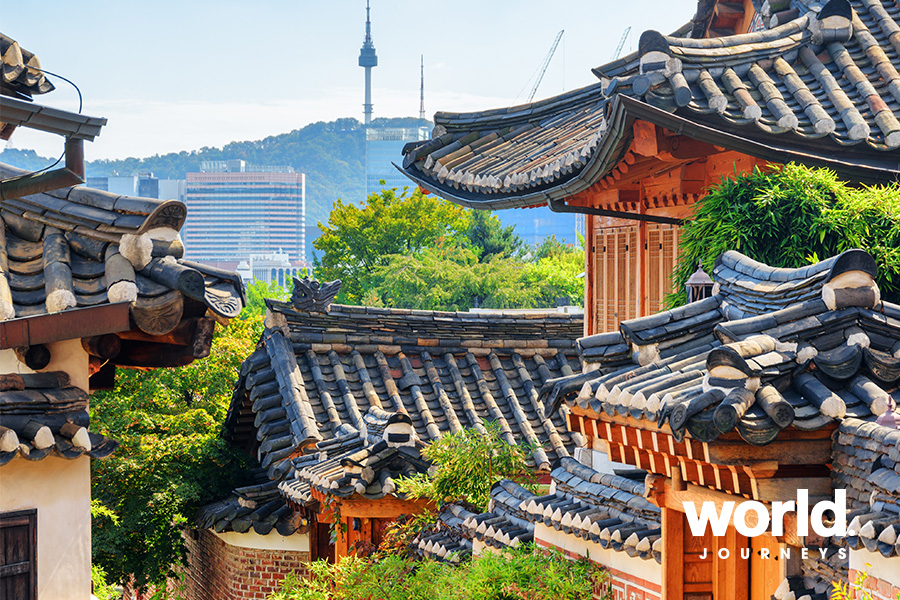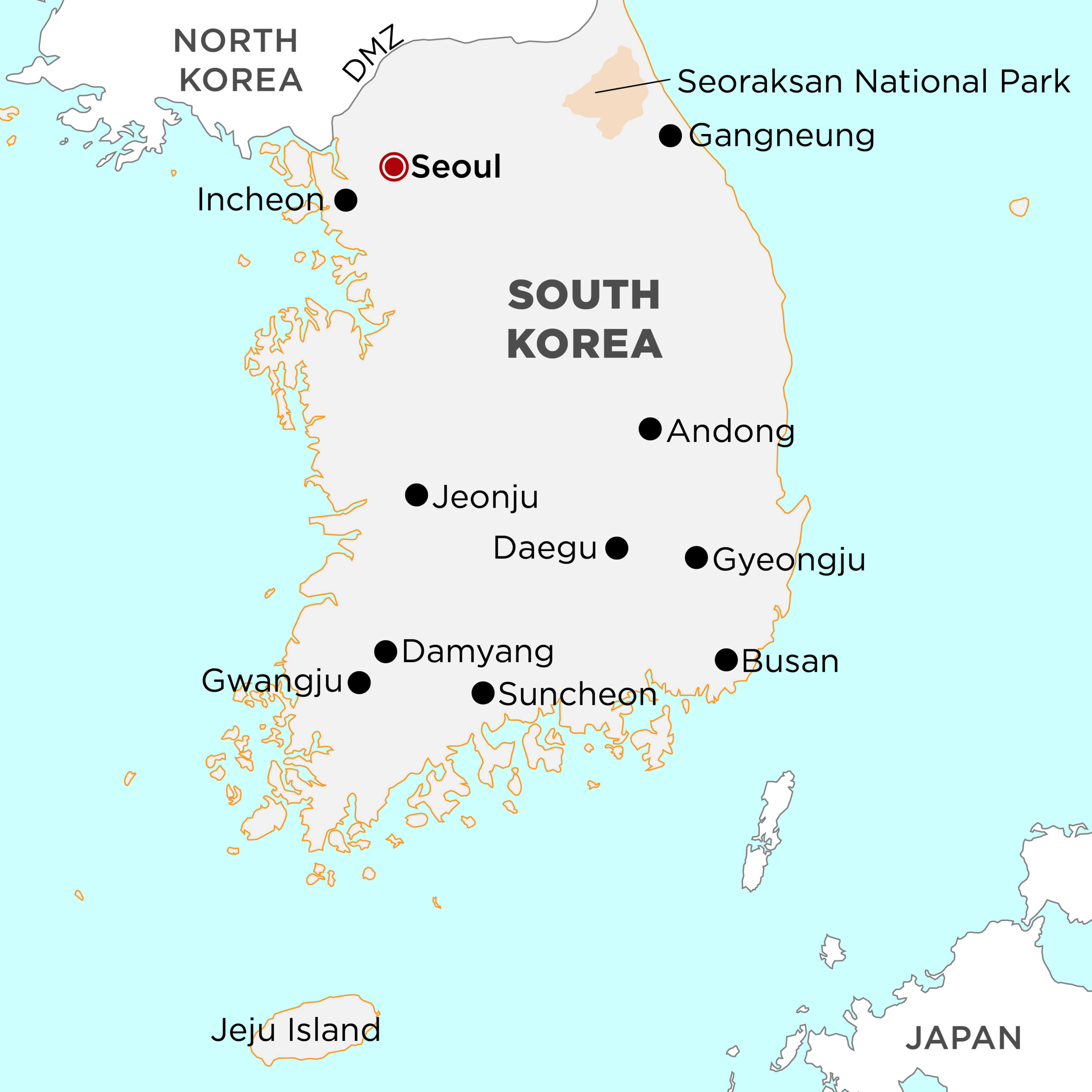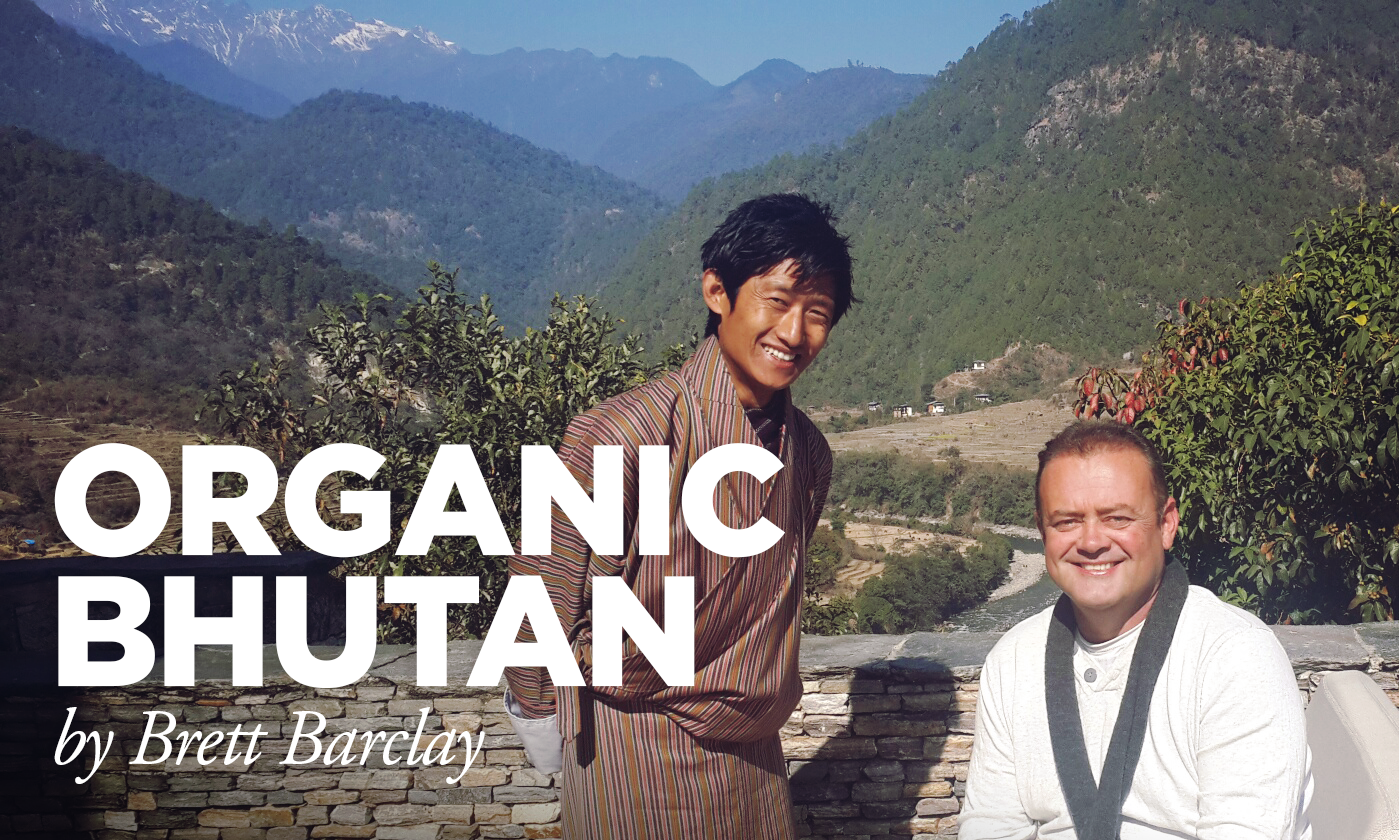South Korea
South Korea is a land of captivating contrasts, where ancient temples stand beside neon-lit skyscrapers.
History buffs will marvel at the grandeur of Gyeongbokgung Palace, while tech enthusiasts can see the latest innovations in Seoul. Foodies will find themselves in paradise, indulging in sizzling Korean BBQ and steaming bowls of kimchi jjigae! Whether you crave cultural immersion, culinary delights, or urban thrills, South Korea has something to offer every kind of traveler.
Read More...Seoul
This is the perfect destination to experience history, traditions and the energetic Korean culture. Seoul has beautiful old palaces with over 600-year history surrounded by modern architecture and a vivid scene of K-Culture where you will find music, fashion trends and performances at every corner!
Busan
The second largest city in Korea, Busan is a cultural centre and where Asia’s largest film festival takes place. Also known for its beaches, mountains, temples and a lively night scene. Visit local markets and the Folk Square for a glimpse into how the locals live. Another highlight is Beomeosa Temple, a Buddhist shrine founded in 678 A.D. located at the base of Geumjeong Mountain.
Incheon
This charming town borders the capital of Seoul and is considered a transportation hub with Incheon International Airport, Korea’s 19th century port and many railway connections cutting through the city. Incheon is a hot spot for entertainment with casinos, spas and golf courses. Incheon also embraces 168 islands creating the perfect atmosphere for a beach holiday.
Ulsan
Located southeast of the country, Ulsan is a diverse destination attracting tourists looking for beautiful scenery, mountains, parks and the view of the deep blue East Sea. Highlights include the Yeongnam Alps, comparable to the European Alps and perfect for your winter holiday; and scenic Ganjeolgot Cape, where the sunrise begins at the earliest in Korea.
We recommend visiting South Korea between April and June (spring months) or between September and November (autumn months) when the temperatures are mild and ideal for exploring popular sites. Avoid visiting the country during Korean New Year (January/February) where temperatures are too cold and most cities and attractions will be busy for the holidays.
Experiencing Seoul, a highlight was a trip out the DMZ (Demilitarised Zone). It was so fascinating to see this really significant place where two very different ‘worlds’ meet. There is actually a village within the DMZ, home to elderly residents who were located there before the Korean War. The guides and transport on the DMZ visit were excellent, as was the museum. I also loved the traditional architecture of Bukchon Hanok Village in Seoul, such a contrast to all the modernity. Gyeongju really lived up to its reputation of being a ‘museum without walls’ with history at every turn, and Busan was also interesting, with a mix of beautiful temples and beachside boutiques. I would encourage anyone to visit South Korea, it really is unique and not just, as some say, “the next Japan”.
Jane Bittman
Currency
South Korea’s official currency is the won (SKW). Credit card payments are the most popular option, but cash is preferred for smaller transactions.
Language
Korean is the main language, and English is well spoken throughout the country.
Why we love it
Fascinating culture and history at every corner. Springtime is one of the best times to visit South Korea with the blooming of beautiful cherry trees. Vibrant streets and many festivals, South Korea is the perfect place to explore. And don’t forget to try the famous Korean BBQ!
Weather
Distinct seasons make this country a year-round destination. We recommend visiting during spring (April to June) or autumn (September to November). Rainy season happens between July and August, while winter (December to March) temperatures get below zero – ideal for winter activities.
Festivals and events
There are many festivals and public holidays throughout the year, such as Korean New Year (January/February) and Cherry Blossom festivals (April), Daeboreum (the first full moon), Dano (spring festival), and Chuseok (harvest festival).
Traditions
South Korean culture is heavily influenced by Confucianism, an ethical philosophy that emphasizes respect for elders, hierarchy, and social order. This is reflected in greetings, social interactions where decisions are often made by the most senior person, and a strong focus on education and achievement.
Food
South Korean food is definitely worth trying! Korean cuisine is known for its bold flavors, extensive use of fermented ingredients like kimchi, and emphasis on fresh, seasonal ingredients. You need to try Bibimbap (a delicious rice and vegetable dish!) and Bulgogi (marinated beef). Meals are often communal experiences, with dishes meant to be shared.
Packages
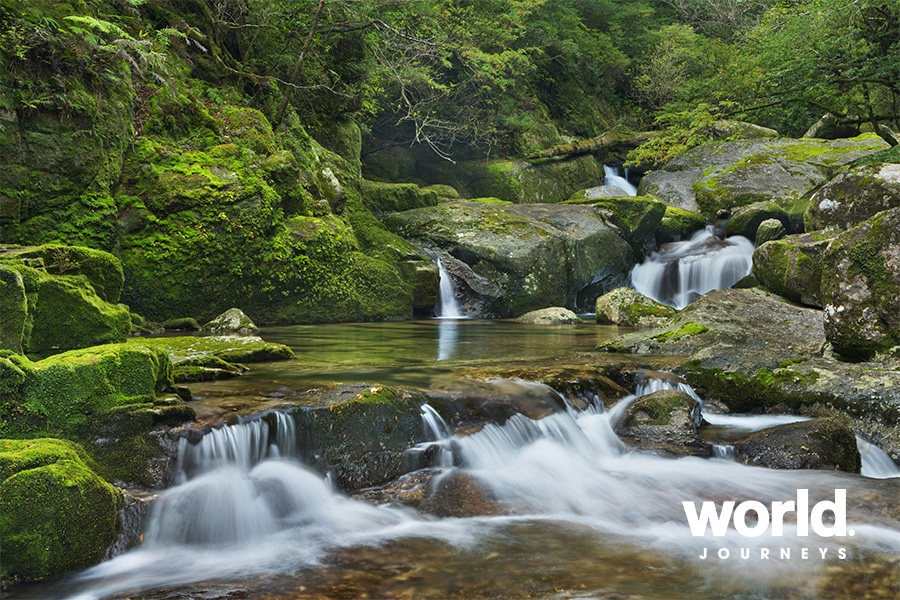
Cruise | Active
Circumnavigation of Japan
17 Days / 16 Nights
Embark on a comprehensive voyage with Hapag-LLoyd Cruises through all...
Onboard Credits!
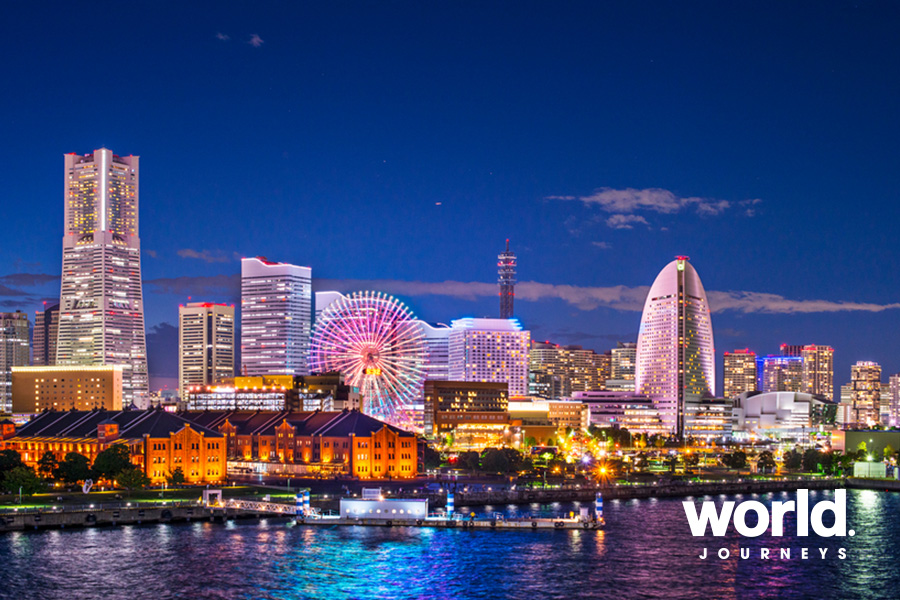
Cruise | Active
Japan's Islands & Inland Sea
17 Days / 16 Nights
Visit South Korea and Japan with Hapag-Lloyd Cruises and embark...
Onboard Credits!


